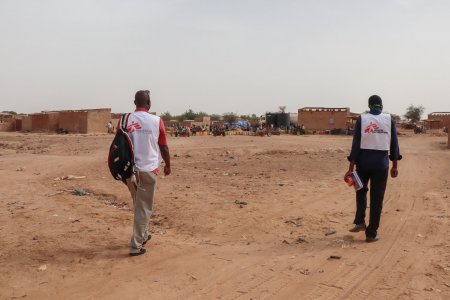 MSF
Analysis
MSF
Analysis
01/28/2021
Françoise Duroch
Michaël Neuman
In this article for the Humanitarian Practice Network, head of the Research Unit on Humanitarian Stakes and Practices (UREPH) for MSF Geneva Françoise Duroch and Crash director of studies Michaël Neuman discuss the implications and reasons behind the growing practice of staff profiling for MSF.
In October 2020, MSF organised a workshop in Dakar on staff profiling in operations in the Sahel. Profiling involves the selection of staff based on non-professional criteria, including nationality, skin colour, gender and religion. As such, it raises a number of ethical and practical concerns. As a result of profiling, US nationals have not been deployed in MSF operations in Colombia because of the risk of kidnapping, and Chadians and Rwandans have been excluded in the Central African Republic and eastern Democratic Republic of Congo respectively, because of regional conflicts. The use of profiling has increased in recent years in West Africa, as the threat of kidnapping of Westerners by radical jihadist groups has intensified.
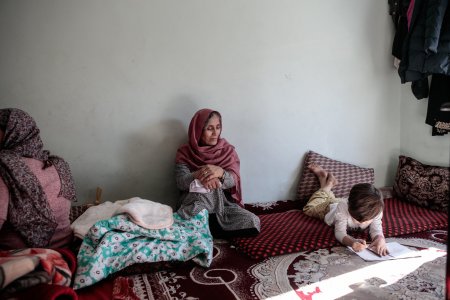 Sandra Calligaro
Analysis
Sandra Calligaro
Analysis
12/07/2020
Fabrice Weissman
The May 12th massacre at the MSF-supported maternity hospital in Dasht-e-Barchi (Afghanistan) raises, yet again, the question of our limits with regard to risk. What is an acceptable level of danger for humanitarian aid workers? How do we set limits? Why would MSF decide to leave Kabul but remain in Herat, for example, or leave Afghanistan but remain in Niger, Burkina Faso, Mali, or Somalia, where the teams also face extreme danger?
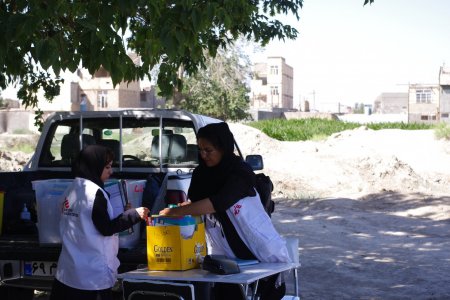 MSF
Analysis
MSF
Analysis
09/18/2020
Fabrice Weissman
On the 31st January, a symposium was held at Sciences Po in support of Fariba Adelkhah and Roland Marchal, researchers at Sciences Po's Center for International Research (CERI) who were arrested in Iran on June 5, 2019. Roland Marchal was released on 20th March 2020 in exchange for an Iranian engineer detained in France. On 6th May Fariba Adelkhah was sentenced to 6 years imprisonment for "propaganda against the political system of the Islamic Republic, and collusion to undermine national security". The researcher was offered conditional release on condition that she terminates her research, but she refused.
The symposium brought together diplomats, journalists, humanitarians and researchers, with the aim of "nourishing reflection about prisoners and hostages, from a political, legal and ethical point of view". Fabrice Weissman presented the experience of Médecins Sans Frontières in the face of kidnappings.
 Analysis
Analysis
02/20/2015
Jean-Hervé Bradol
How to intervene with the civilian populations in the middle of the war in Syria? Jean-Hervé Bradol, director of studies at Crash and former project coordinator for the northern part of Syria in 2013, testifies about the negotiations carried out in Syria in cities taken by groups affiliated to Al Qaeda or the Islamic State. This article was published on the Mediapart website on February 1, 2015.
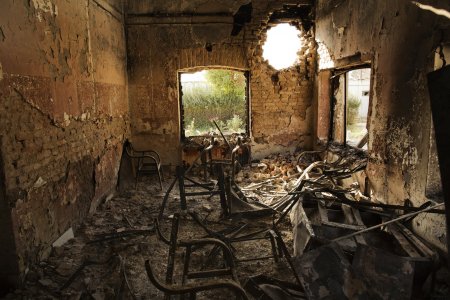 Victor J. Blue
Analysis
Victor J. Blue
Analysis
11/22/2019
Xavier Crombé
Joanna Kuper
This article seeks to document and analyse violence affecting the provision of healthcare by Médecins Sans Frontières (MSF) and its intended beneficiaries in the early stage of the current civil war in South Sudan. Most NGO accounts and quantitative studies of violent attacks on healthcare tend to limit interpretation of their prime motives to the violation of international norms and deprivation of access to health services. Instead, we provide a detailed narrative, which contextualises violent incidents affecting healthcare, with regard for the dynamics of conflict in South Sudan as well as MSF’s operational decisions, and which combines and contrasts institutional and academic sources with direct testimonies from local MSF personnel and other residents. This approach offers greater insight not only into the circumstances and logics of violence but also into the concrete ways in which healthcare practices adapt in the face of attacks and how these may reveal and put to the test the reciprocal expectations binding international and local health practitioners in crisis situations.
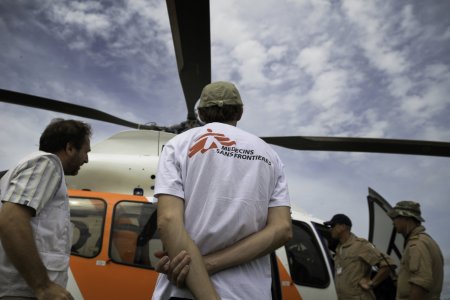 Robin Meldrum/MSF
Analysis
Robin Meldrum/MSF
Analysis
11/22/2019
Fabrice Weissman
This article discusses the policy of absolute secrecy on abductions adopted by aid organisations. It argues that the information blackout on past and current cases is to a large extent a function of the growing role of private security companies in the aid sector, which promote a ‘pay, don’t say’ policy as a default option, whatever the situation. The article contends that secrecy is as much an impediment to resolving current cases as it is to preventing and managing future ones. It suggests abandoning the policy of strict confidentiality in all circumstances – a policy that is as dangerous as it is easy to apply – in favour of a more nuanced and challenging approach determining how much to publicise ongoing and past cases for each audience, always keeping in mind the interests of current and potential hostages.
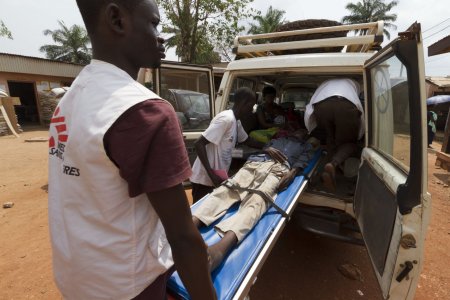 Andre Quillien
Review
Andre Quillien
Review
11/24/2017
Kevin McMahon
Kevin MacMahon's review of "Saving Lives and Staying Alive: Humanitarian Security in the Age of Risk Management" (Michaël Neuman and Fabrice Weissman, London: C. Hurst & Co, 2016) is published in the Journal for the Study of Peace and Conflict (2016, pages 69-70).
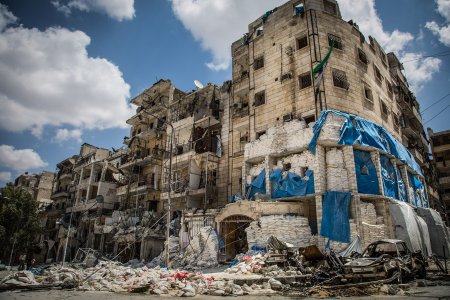 Karam Almasri
Interview
Karam Almasri
Interview
02/15/2017
Pierre Mendiharat
Interview with Pierre Mendiharat, deputy director of operations (MSF).
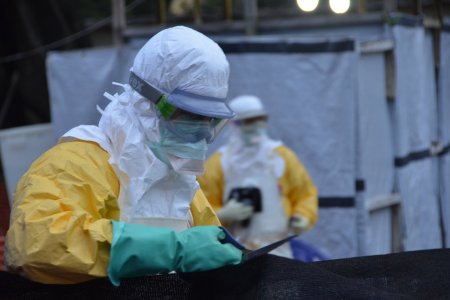 Julien Rey
Op-ed
Julien Rey
Op-ed
04/15/2016
Fabrice Weissman
Michaël Neuman
Since the 1990s and the rise of conflicts in West Africa, Somalia, Chechnya, the former Yugoslavia and Africa's Great Lakes region, humanitarian organisations have been warning of greater insecurity for their staff. These observations are bolstered by surveys aimed at objectively quantifying violence against humanitarian workers.
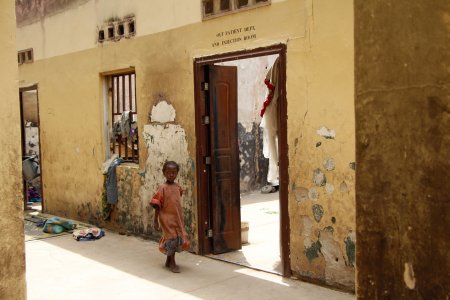 Benoit Finck
Analysis
Benoit Finck
Analysis
07/25/2016
Rony Brauman
Rony Brauman focuses on the humanitarian environment and practices in war, in order to try to understand and analyze its political and ethical stakes. Starting with the creation of the Red Cross at the end of the XIXth century, he then focused on the contemporary postcolonial period, switching between various scales and reporting on contradictory points of view and issues.
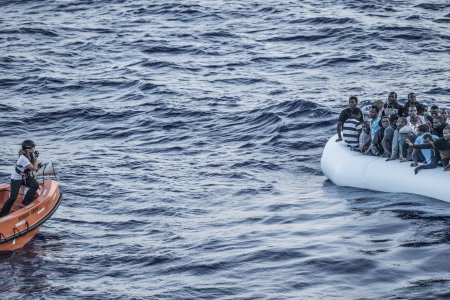 Francesco Zizola
Analysis
Francesco Zizola
Analysis
01/30/2015
Fabrice Weissman
This article is an English translation of an interview of Fabrice Weissman about the State of the Humanitarian Sector, in Revue Internationale et Stratégique (n°98, 2015/2) published by the Institut de Relations Internationales et Stratégiques
 Opinion
Opinion
08/16/2004
Fabrice Weissman
Fabrice Weissman reminds us that while the clarity of the humanitarian emblem is no guarantee of absolute safety, it is nevertheless an essential prerequisite to it.
 MSF
Analysis
MSF
Analysis







